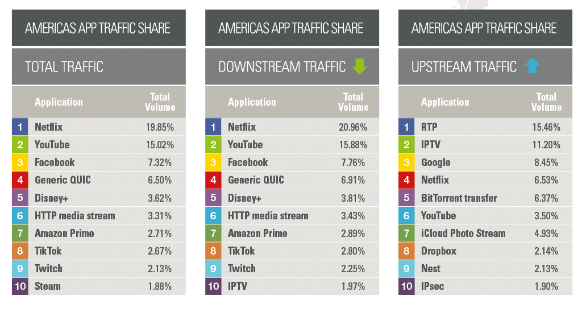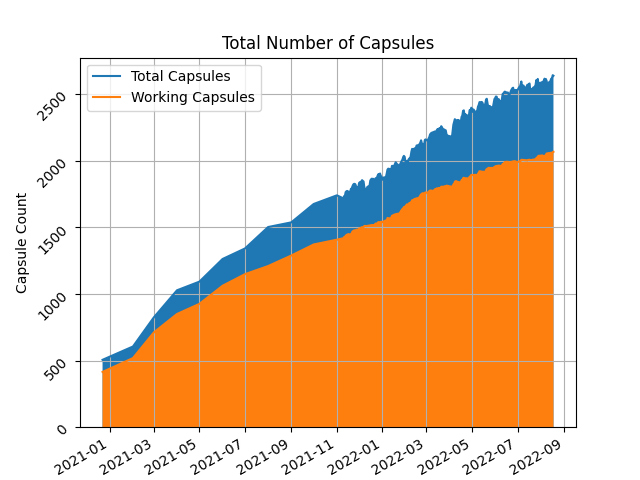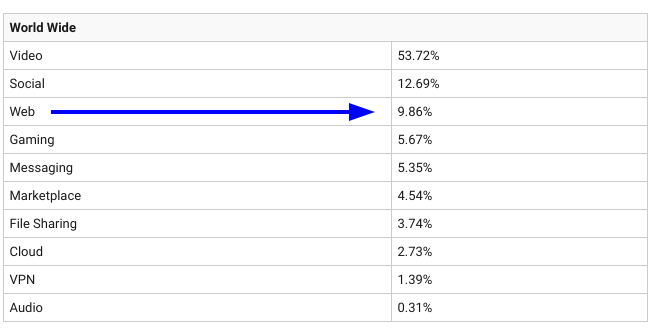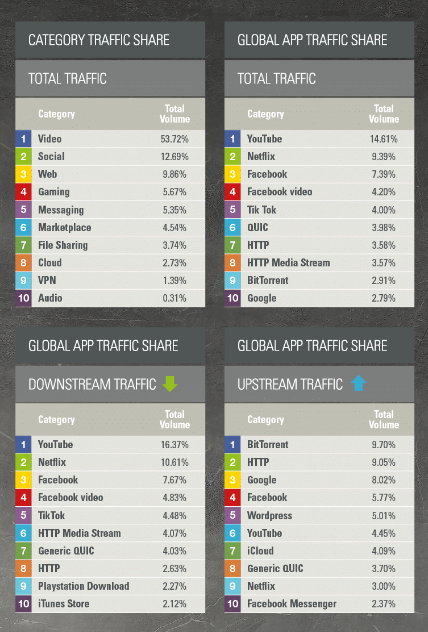Also, a lot of so-called 'Web pages' are just scripts, notably JavaScript code to be executed inside a bloated, unsafe-to-use, privacy-hostile Web browser

A lot of that utility has been turned into "apps" (2022 figures)
Summary: The Web is shifting from a vast set of interlinked pages into disparate objects and programs, which are inherently proprietary, inefficient, and undesirable (many users attempt to block them); there are thankfully efforts to recreate what the Web used to be and really should be
A COUPLE of recent Techrights posts had struck a nerve and went "viral" for several days. Those were about the demise of the Web and Microsoft's role in the Web. From what we're able to gather, in recent years it became harder to find figures on breakdowns by protocol. Net analysis firms (Internet usage by protocols) languished somewhat; they lack the incentive to research the matter, at least compared to a decade ago.
Techrights deals with only a narrow set of protocols: SSH, HTTP/S, IPFS, IRC, Gemini...
Speaking of the latter, adoption of Gemini continues to grow. "There are 2641 capsules,"
says Lupa, and there are some
new (today's) graphs that show changes over time:

Gemini is hardly a "top dog", but something is certainly happening while the media fails to report on it (reluctance to deviate away from PR scripts).
"Sandvine gathers data from the 160 largest fixed and wireless ISPs on the planet to understand Internet usage trends. The statistics discussed below come from the Sandvine January 2022 Global Internet Phenomena Report,"
Doug Dawson (CCG Consulting) wrote earlier this year.

He links to
this report, from which we've extracted some of the original tables:

The Web's share continues to decrease. Nothing lasts forever. The Web -- now well in its thirties -- simply wanes; its hypertext/SGML syntax is being gradually replaced, with things like latex/markdown/similar growing from the editing side of things (e.g. Wiki/CMS front ends) and GemText (for Gemini Protocol) also steadily gaining share.
As an associate put it a while ago, many so-called 'journalists' continue to "conflate the 'Web' with The Internet, where the Web from their point of view is basically the browser acting as a VM for unvetted scripts of dodgy provenance [...] they inject unvetted code of unknown origin into the browser to run blindly in place of static data. Static data would be much more efficient to produce and publish but that must not be the goal any more."
⬆

